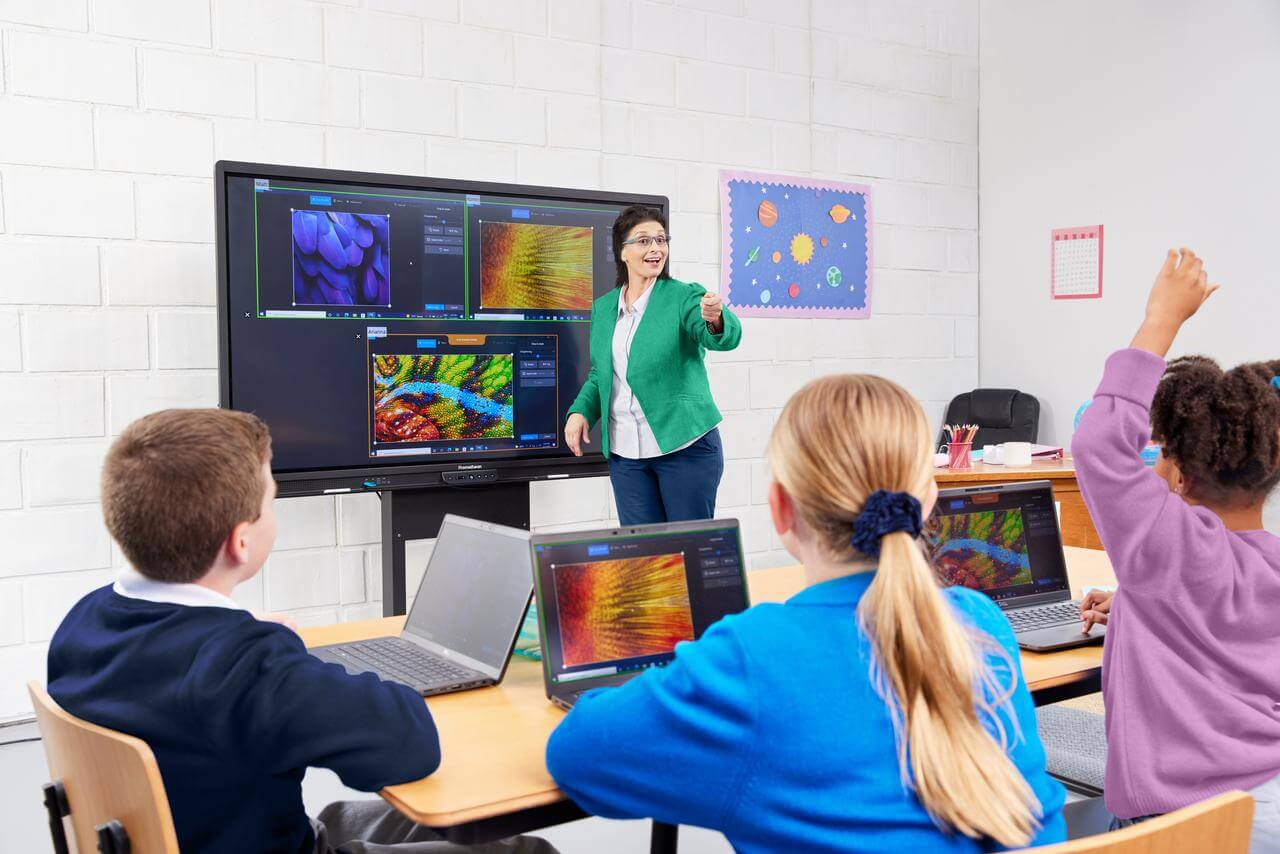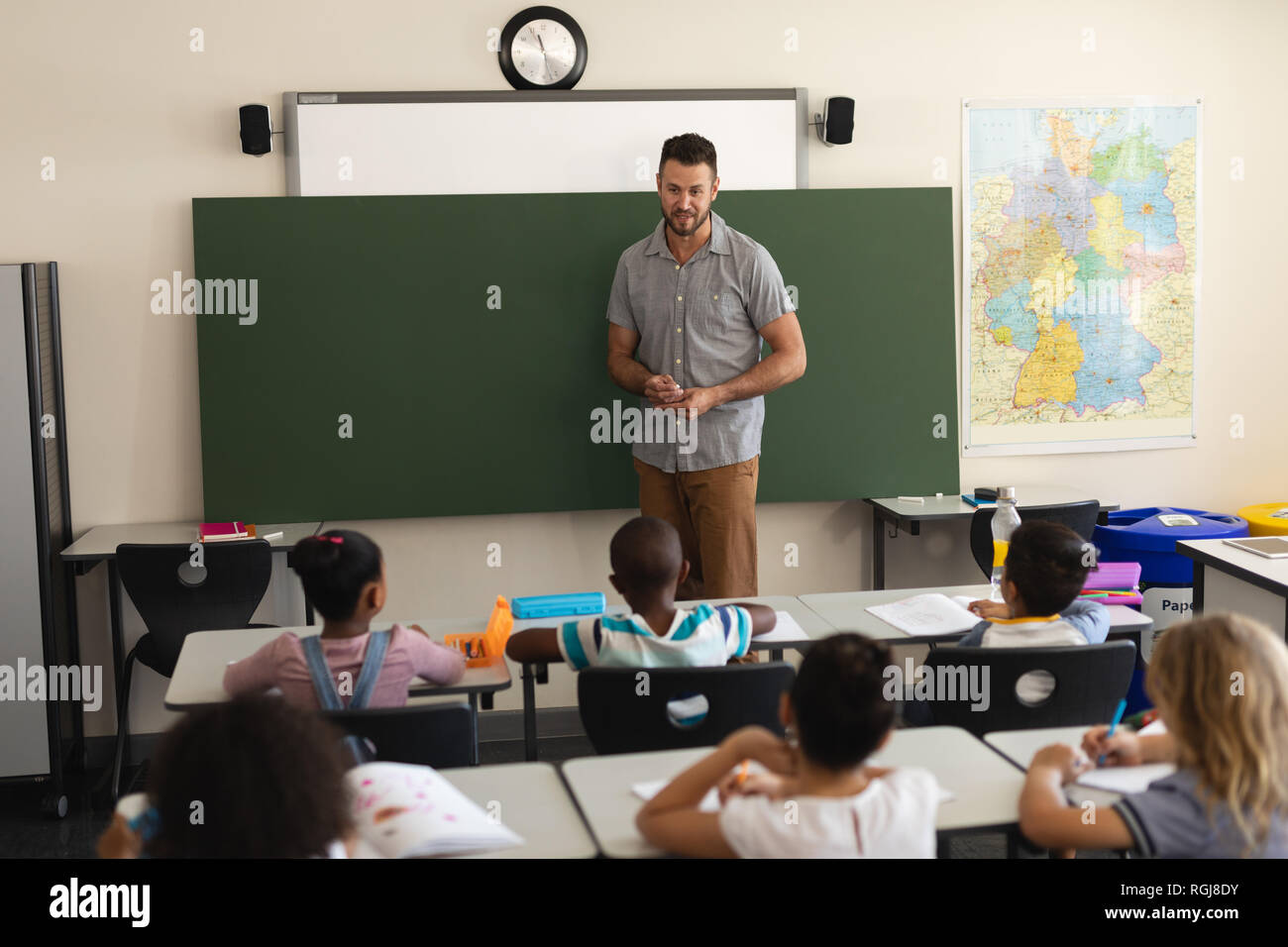Primary Science Tuition Singapore for Building Confidence in Science
Primary Science Tuition Singapore for Building Confidence in Science
Blog Article
Discover the Crucial Advantages of Recognizing Main Scientific Research for Young Learners
The value of primary scientific research education and learning for young learners prolongs much past plain understanding purchase; it acts as a fundamental pillar in creating vital skills such as essential thinking, problem-solving, and creativity. Engaging with scientific concepts with inquiry-based and interactive tasks not only grows inquisitiveness but likewise lays the groundwork for resistant, confident learners. As we discover these benefits even more, it comes to be clear that the implications for future scholastic and personal development are extensive. What certain methods can teachers use to take full advantage of these advantages?
Enhancing Crucial Believing Skills
Cultivating important thinking abilities in young learners is essential for their cognitive advancement and future scholastic success. Vital reasoning makes it possible for youngsters to evaluate info, evaluate proof, and make educated decisions, which are important skills in today's information-rich society. By participating in clinical inquiry, young students can enhance these skills as they discover principles with thinking, monitoring, and trial and error.
In key scientific research education and learning, instructors can facilitate important thinking by urging pupils to ask inquiries, create theories, and perform experiments. This hands-on method permits kids to practice analytical and develop rational reasoning skills. When students check out the residential properties of materials or the concepts of movement, they discover to analyze their searchings for critically and attract final thoughts based on proof.
Additionally, conversations and collective projects can advertise essential reasoning by giving opportunities for students to articulate their thoughts, obstacle assumptions, and think about diverse point of views. By producing a helpful atmosphere that values query and reflection, educators can support critical thinking abilities that empower young students to come to be long-lasting learners and independent thinkers. Inevitably, enhancing these skills lays a robust foundation for their future scholastic endeavors and personal growth.
Promoting Curiosity and Exploration

Primary science education and learning supplies an organized atmosphere where young students can discover various phenomena through hands-on experiments and monitorings. By permitting them to engage with products and take part in inquiry-based learning, educators create chances for children to formulate hypotheses, check their concepts, and reason. Such experiences nurture a feeling of wonder and exhilaration about science.

Building Self-confidence in Issue Fixing
Structure self-confidence in problem-solving is a critical component of primary scientific research education that equips young learners to come close to challenges with durability and creative thinking - primary science tuition Singapore. When children are encouraged to involve with clinical principles via hands-on tasks and inquiry-based understanding, they develop important skills in crucial reasoning and analysis. This procedure not just boosts their understanding of scientific concepts however additionally fosters a sense of possession over their knowing
To construct confidence, instructors must produce a supportive setting where mistakes are deemed possibilities for development instead of failures. This motivates pupils to take threats and discover various solutions to problems. By giving scaffolding and guidance, teachers can help trainees browse intricate jobs, progressively enhancing their freedom in problem-solving scenarios.
Additionally, collective understanding experiences, such as team tasks or experiments, can even more boost pupils' self-confidence as they learn to verbalize their thoughts and listen to others' perspectives. These communications nurture social skills and strengthen the idea that analytical is often a cumulative endeavor. Inevitably, growing confidence in analytical prepares young students for future academic obstacles and furnishes them with the tools essential for lifelong knowing.
Urging Creativity and Development
In the realm of primary scientific research education, motivating creative thinking and innovation is essential for growing a vibrant knowing atmosphere. By cultivating a culture where young learners can discover concepts and experiment easily, instructors aid pupils develop vital thinking skills and an interest for discovery. Creativity in science encourages children to ask concerns, develop hypotheses, and participate in hands-on activities that promote their creativity.
Incorporating open-ended jobs and inquiry-based understanding right into the curriculum permits trainees to share their distinct point of views and services. When charged with addressing an issue associated to their environment, students can conceptualize multiple methods, leading to inventive results that display their creativity. This not only strengthens their understanding of clinical concepts however also instills a sense of ownership over their understanding procedure.
Moreover, imaginative science education and learning nurtures partnership amongst peers, as trainees commonly share concepts and improve one another's understandings - primary science tuition Singapore. This collaborative spirit promotes not just innovation but additionally essential social skills. Thus, by prioritizing creative thinking and technology in key science education and learning, we equip young learners to think seriously, accept obstacles, and picture possibilities, laying a strong foundation for lifelong learning and expedition
Planning For Future Understanding Difficulties
Young students' capability to navigate future understanding obstacles rests on a strong foundation in main scientific research education. This foundational understanding gears up students with vital thinking abilities and a methodical technique to analytic, essential for tackling intricate problems in an ever-evolving world. Primary scientific research cultivates inquiry-based learning, encouraging trainees to my sources ask concerns, check out theories, and take part in hands-on experiments.
As they develop these skills, learners end up being experienced at examining data, recognizing patterns, and drawing notified conclusions. Such expertises are essential not only in scientific areas but likewise in design, innovation, and math (STEM), where interdisciplinary knowledge is increasingly essential.
In addition, main scientific research education cultivates a feeling of inquisitiveness and durability in young learners, allowing them to watch obstacles as possibilities for growth. news As they come across and get over obstacles in their clinical explorations, they build confidence in their capability to innovate and adjust.
Eventually, a strong structure in primary science not only prepares young learners for scholastic quests yet additionally furnishes them with the devices necessary for long-lasting learning and adaptability in a quickly altering global landscape. By purchasing main scientific research education and learning, we are spending in the future capacity of our students.
Conclusion
Comprehending main science is critical for young learners, as it promotes important reasoning, inquisitiveness, and creativity. Involving with clinical principles through hands-on experiments builds and boosts problem-solving capacities strength. This fundamental expertise not just equips students to evaluate information and recognize patterns but additionally supports an inquiry-based mindset. Eventually, the advantages of key science education prepare children for future scholastic quests and impart long-lasting knowing practices necessary for growing in an ever-evolving world.
The significance of key scientific research education and learning for young learners prolongs much beyond plain knowledge acquisition; it serves as a fundamental column in developing crucial skills such as important reasoning, analytical, and imagination. By creating a helpful setting that values query and representation, educators can nurture crucial believing skills that empower young students to end up being lifelong students and independent thinkers. Hence, by focusing on creativity and advancement in primary science education and learning, we empower young learners to assume seriously, welcome obstacles, and visualize opportunities, laying a solid structure for lifelong discovering and expedition.
Young students' capacity to browse future learning difficulties hinges on a you can look here solid foundation in main scientific research education and learning.Understanding main science is important for young learners, as it cultivates essential thinking, curiosity, and imagination.
Report this page